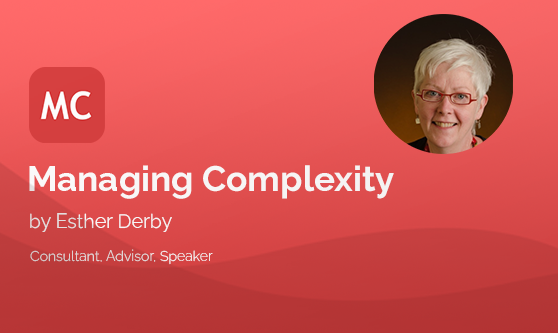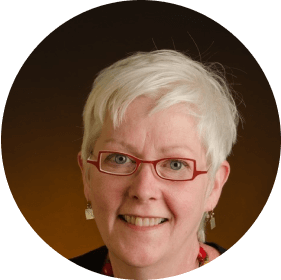Managing Complexity
The Managing Complexity survey helps organizations assess their leadership approach in three critical domains: Steering, Enabling and Enhancing, and Making.
By understanding their team's performance in these domains, organizations can identify areas for improvement and adopt a more effective leadership style suited to today's complex business environment.
Created by:

Identify concrete areas where you need to improve
The capability is based on the work of Esther Derby, one of the most influential voices within the agile communities when it comes to developing organizations, coaching teams, and transforming management. Organizations need flexible approaches to work and decision-making due to fast-paced change.
Managing Complexity is about creating a workplace where everyone in your organization contributes creatively to solving problems and where people don't wait to be told what to do.
Sample Questions
Steering
Jobs and role structures support the way people really work.
Enabling and Enhancing
Business and technology directions are understood.
Making
Teams, customers, and managers share a definition of done.
Enabling and Enhancing
There are robust feedback loops that enable everyone to steer and make corrections.
Steering
People understand what difference the organization makes for customers.
Enabling and Enhancing
Managers at all levels understand team and organizational capacity.
Making
Teams know how to handle disagreements.
Making
Teams know what they can decide and which decisions call for conversation outside the team.
Steering
The same ethical standards apply to people at all levels.
Top Features
Leverage proven, peer-reviewed research to quickly identify where your organization needs attention and initiate a conversation to understand how you can help.
Gain insights expeditiously - perform analysis at the team, program and organizational levels.
Give your teams a voice - and allow them to express where you can make a meaningful difference for your organization.
Benchmark Managing Complexity across your teams and organization with other organizations in your industry.

